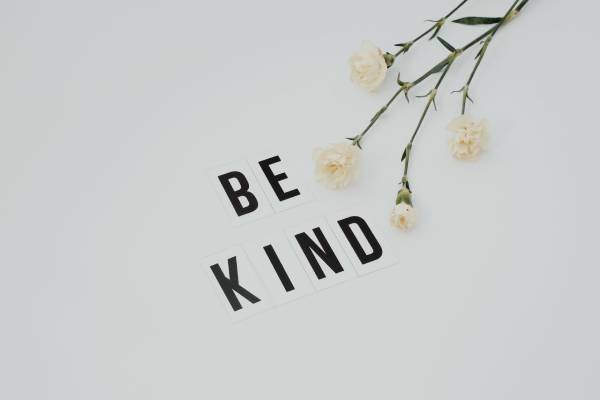How do you stop being toxic? Featured all over the internet are articles about recognizing and dealing with toxic family members, friends, and even colleagues. However, in specific circumstances, people forget that they also carry toxic behaviors—sometimes, they are the problem. So, how can you see the signs of your negative or selfish behavior? How do you stop it?
In this article, we talk about your toxic attitudes and how to effectively deal with them..
Table of Contents
What Being Toxic Looks Like

Did you experience becoming too possessive over your girlfriend or boyfriend’s activities? How about limiting your spouse’s interactions with old workmates and friends? Or did you try undermining the achievements of friends because you didn’t want their sudden success? All of these things connect to toxicity in a relationship.
Psychologist and communicator Dr. Lillian Glass defined a “toxic relationship” as any kind of human connection where the support system is unstable, competition is too high, and disrespect is present in conversations. Simply put, the healthy relationship you foresaw during the start of the affair has reached a rough patch.
Now, toxicity is not only visible in romantic relationships; it’s also evident in different parts of your life. For instance, toxic traits can be observed between friends and co-workers, much like in families. Regardless of the relationship, if the connection between these individuals lacks positive vibes and understanding, it’s on the brink of becoming toxic. And you have to learn how to stop being toxic. In most cases, the signs are too subtle for you to realize—whether it’s you becoming toxic or the people around you.

So, here are some instances of toxicity in a relationship:
- Your partner does not allow you to be with other people, especially friends and colleagues at work.
- Your spouse guilt trips you whenever you bring up a troubling topic about your relationship.
- There is a constant need for validation in the relationship even when it’s not needed.
- Toxic parents will force you to do things for them, even when it isn’t your responsibility.
- You don’t have alone time for yourself and will always attend to others.
- Over time, you can negative effects of the toxicity in the relationship in your daily habits, sleep patterns, and leisure activities.
How to Stop Being Toxic (Recognizing and Avoiding Toxic Behavior)

According to Psychology Today, there are eight distinct things that most toxic people around you have in common. Besides attaching these elements to others, you can also have these attributes if you start becoming a difficult person to deal with in the household or workplace.
Different traits come in many situations. While there are tons to discover, we’ve listed down four toxic traits you should look out for in personal and professional relationships—and in yourself, too.
- Manipulative and Guilt Tripping – There is no equality in the relationship and the other person will try everything to get his or her way. Manipulative people exert effort into pushing others to do things for them, even when it can detrimental for the people doing the task. Moreover, they can easily twist words to guilt-trip you into believing it was your fault. They are wordsmiths of designing traps for your emotions. Or another way around, you become the skilled talker in the relationship.
- Judgmental and Negative – Toxic grandparents and tough friendships will have judgmental and negative thoughts about your work, habits, personal life, and choices. Even when you’re doing well on your own, they believe you should have done better or can do more. On the flip side, if you’re toxic, you often judge your friends and family members. In some cases, nitpicking your cousins just to find some details to lash about.
- Passive Aggressive – Instead of showing their distaste or discontent, they choose to be more subtle in dealing with their toxic mindset. Often, they don’t talk about what they really feel; rather, they give snide comments, unnecessary silent treatments, and disapproving stares. On the other side, you can also be passive-aggressive in the relationship, being an inconvenience to people around you.
- Anger Management Issues – After being upset, people blow steam to feel better. However, toxic people have anger management issues. Every little thing ticks them off. In the end, it creates anxiety during normal days. On the other hand, if you are easily irritated and annoyed over small things, then you have to start evaluating yourself.
How to Tell If You’re Becoming Toxic

Admitting you have toxic tendencies is one of the first steps in effectively dealing with this unhappy behavior. It’s definitely hard to acknowledge the situation and teach yourself how to stop being toxic. However, that small step can influence how you prepare for the future processes.
In 2019, Reader’s Digest published an article about the signs of a toxic relationship and its reasons. You’d thought that with articles like these, people would know how to stop being toxic. But it’s not that easy. According to the same Reader’s Digest article, it takes “two people” to create negative friction between the partners. Hence, at some point, both of the individuals have played their part in the misunderstanding. So, how do you know if you’re becoming toxic? We’ve gathered some excellent guidelines to help determine whether you have toxic traits or not.
- The Blame Game – Instead of owning up to your mistakes, you blame others. And when you’re nearly caught in the act, you play the victim to avoid addressing the issues. Moreover, you accuse everyone of going against you even when they’re trying to help. Importantly, you believe you’re always right.
- Becoming an Opportunist – Rather than being guided in the right direction, you take the advantage of the situation by exploiting others. You want the easiest way to succeed and will choose to trample over others just to get there. So, evidently, you’ll ignore everything even when you’ve hurt someone.
- Stuck in the Past – A toxic person can’t let go of the past and will cling to it, especially if it reeks negativity. If you are holding a grudge against someone even after apologies were given, then you start to have a toxic mindset.
- Dominant Personality – Being assertive in the workplace is an asset. However, if you start to overpower others and dominate different aspects of the office, then it’s a bad habit. A toxic person with a dominant personality will compromise and listen to others.
Changing Yourself for the Better

People tend to be insensitive and find it easy to tell you how to stop being toxic. Change is hard, but it’s a constant in this world. And for people who are being selfish, domineering, and unfair, undergoing the whole three-sixty turn is the best solution. But, why do you need to change? If you continue down this path, you will lose the trust and care of the people supporting you. In the end, you’ll be alone and more unhappy.
With that being said, what should you do to be a better person in the relationship?
Once you’ve identified the negative traits you have, you’ll feel lost and confused—and that’s absolutely normal. And then, you have to sincerely apologize to yourself and the people you hurt. Talk with your family, friends, and coworkers and ask where you went wrong and what things were out of line. By knowing the things you did, you can prevent them from happening again.

It’s a slow process, but you should be more cautious with everything you do. Minimize how you react to simple misunderstandings. Avoid overbearing your partner. Start that conversation with your mom and dad. Own up to your mistakes, accept your faults, and do better. Be open to criticism and receive feedback. In this sense, you are being vulnerable to become a stronger and better person.
If things are difficult to come by, then you can seek the help of professionals to know exactly how to stop being toxic before it becomes serious. Talk with a counselor or doctor and air out your concerns. In this way, you will know the countermeasures to your problems. Don’t be afraid of talking to these experts; they are here to help.
At the end of the day, everyone has a toxic trait. It’s one of the frailties of being human. But to control these tendencies and avoid them from overpowering you is what makes every person a unique entity living on this planet.
